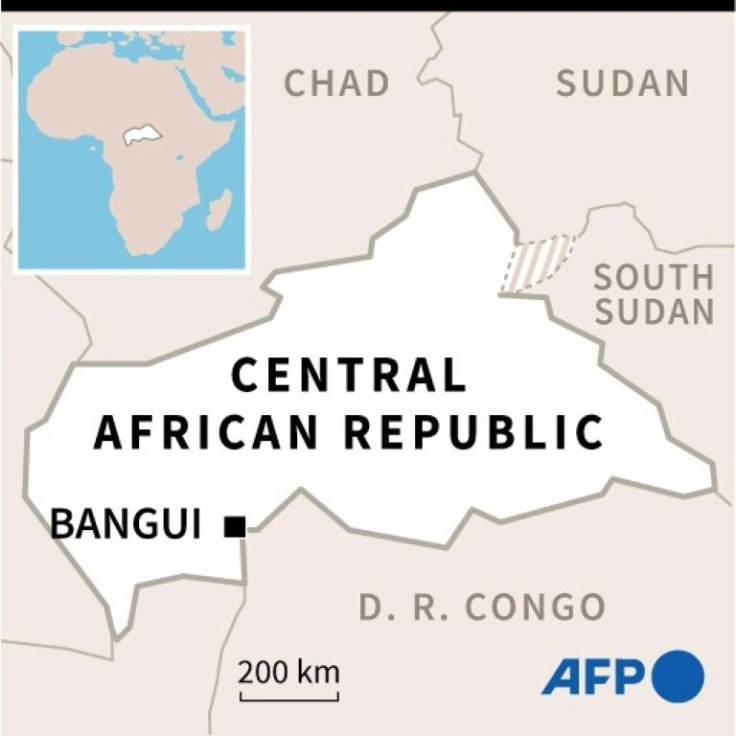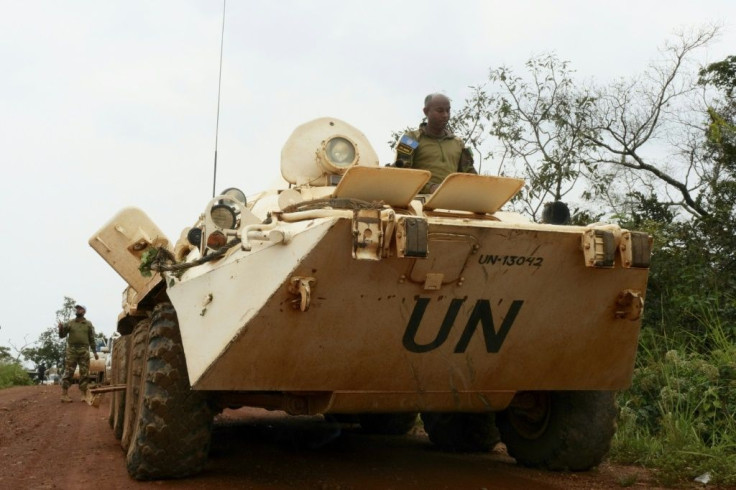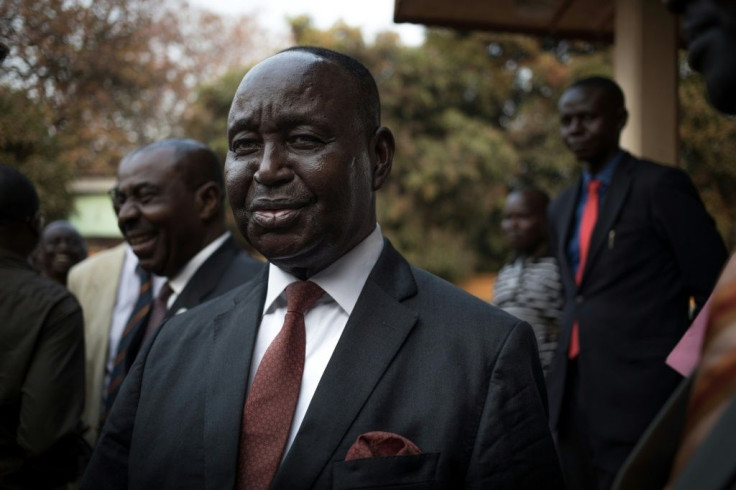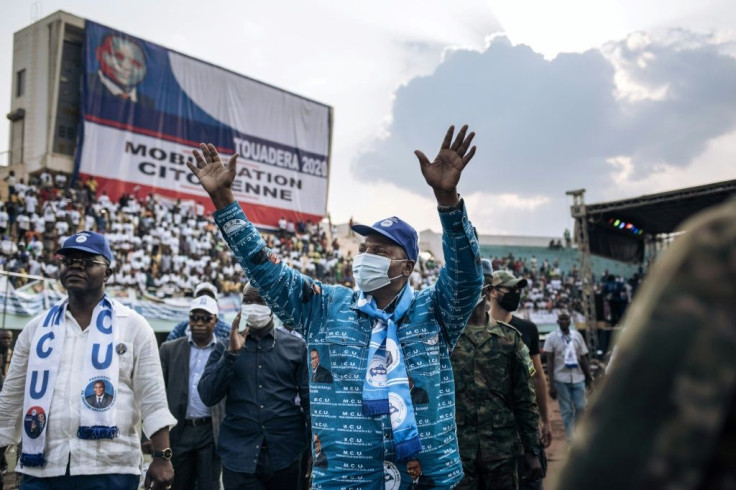C.Africa Says Russian, Rwandan Troops Sent After Alleged Coup Bid
The Central African Republic said Monday that Russia and Rwanda had sent in hundreds of troops after an alleged attempted coup ahead of upcoming elections.
Rwanda confirmed soldiers had been deployed under a bilateral agreement, while Russia denied any troops had been sent, although it noted that personnel were there under an accord with the troubled country.
The CAR government accused former president Francois Bozize at the weekend of seeking to foment a putsch by three militias ahead of a general election to be held on December 27.
The armed groups on Friday started to advance on the capital Bangui along key highways, it said. The UN peacekeeping force MINUSCA announced late Sunday that the rebels had been stopped or pushed back and the situation was "under control".

"Russia has sent several hundred soldiers and heavy weapons" under a bilateral cooperation agreement, CAR government spokesman Ange Maxime Kazagui said.
"The Rwandans have also sent several hundred men who are on the ground and have started fighting," he added.
Rwanda confirmed that its soldiers had been deployed, but gave no figures.
The armed groups sought to "disrupt the elections" and Rwanda "also learned that some of them wanted to target our own forces in Central Africa because our forces there have been uncompromising," Rwandan President Paul Kagame said.

Kagame warned the Rwandan troops would not be bound by UN rules of engagement.
His country is a major contributor to the 11,500-strong UN MINUSCA force.
Its MINUSCA contingent is notably in charge of the security of CAR President Faustin-Archange Touadera and the presidential palace.
But the new deployment, Kagame said, will operate specifically under a bilateral arrangement with CAR authorising them to contain "any situation that is aimed at disrupting the elections and also protect Rwandan peacekeepers against being targeted by rebels."

After the announcement in Bangui, Kremlin spokesman Dmitri Peskov said the situation in the CAR was a cause of "serious concern" but otherwise did not respond to the report.
Hours later, Deputy Foreign Minister Mikhail Bogdanov said, "We are not sending troops, we are complying with all UN resolutions."
But, quoted by Interfax news agency, he also noted that Russia had previously sent military instructors to the CAR under a bilateral cooperation agreement, saying: "So our people are there, naturally."

Moscow has been leading a vast diplomatic and financial offensive in the former French colony since 2018 in return for concessions to Russian firms to exploit minerals, particularly gold and diamonds.
Private security guards employed by Russian companies also provide protection for Touadera and are involved in training local armed forces.
The alleged coup attempt was mounted by three of the country's most powerful militias.
They said they had merged into a single entity called "the Coalition for Patriots for Change" and invited all other groups to join.
The so-called G5 group -- France, Russia, the US, the EU and the World Bank -- urged Bozize and allied armed groups to lay down their arms and called for Sunday's presidential and parliamentary elections to go ahead.
Bozize, 74, who denies the coup plot allegations, slipped back into the country in December 2019 after years in exile, sparking fears of a comeback.
He retains a large following, especially among the Gbaya ethnic group, the country's largest, and has many supporters in the army.
The former general came to power in a coup in 2003 before he himself was overthrown in 2013.
Bozize has been barred from contesting the elections by the CAR's top court as he is the target of a 2014 arrest warrant for alleged murder and torture and is under UN sanctions.
Bozize's absence from the poll has left Touadera the clear frontrunner in the 17-strong field of candidates.
But his government holds sway over only around a third of the CAR's territory, with the rest in the hands of militia groups.
Former prime minister Anicet-Georges Dologuele, Touadera's main challenger who has Bozize's backing, on Monday called for "a truce to avoid the worst".
But Touadera dismissed the possibility of negotiations with the rebels.
"Negotiate how, in what form? You can see that there are attacks, we don't have time to negotiate, we don't know with whom to negotiate," he said Monday during a press conference held at the campaign headquarters of his party in Bangui.
© Copyright AFP 2024. All rights reserved.











